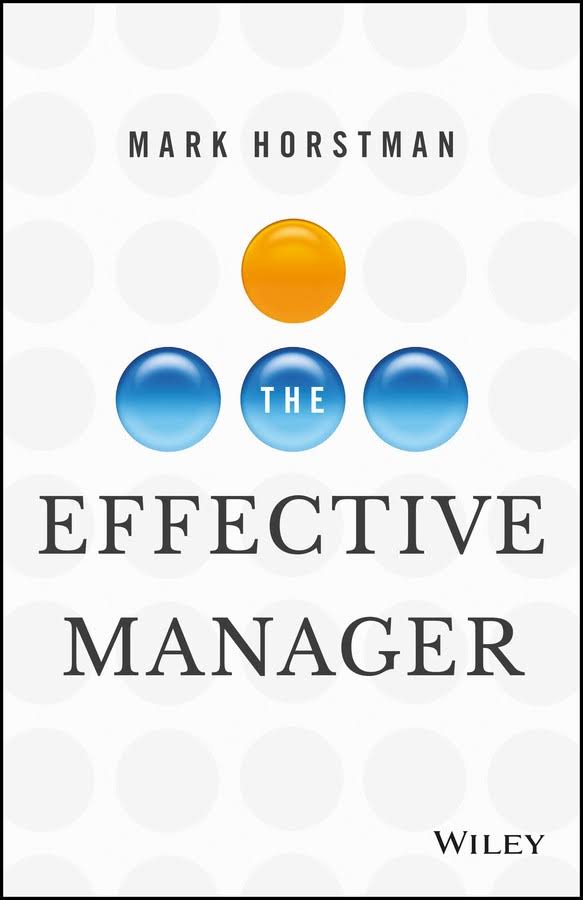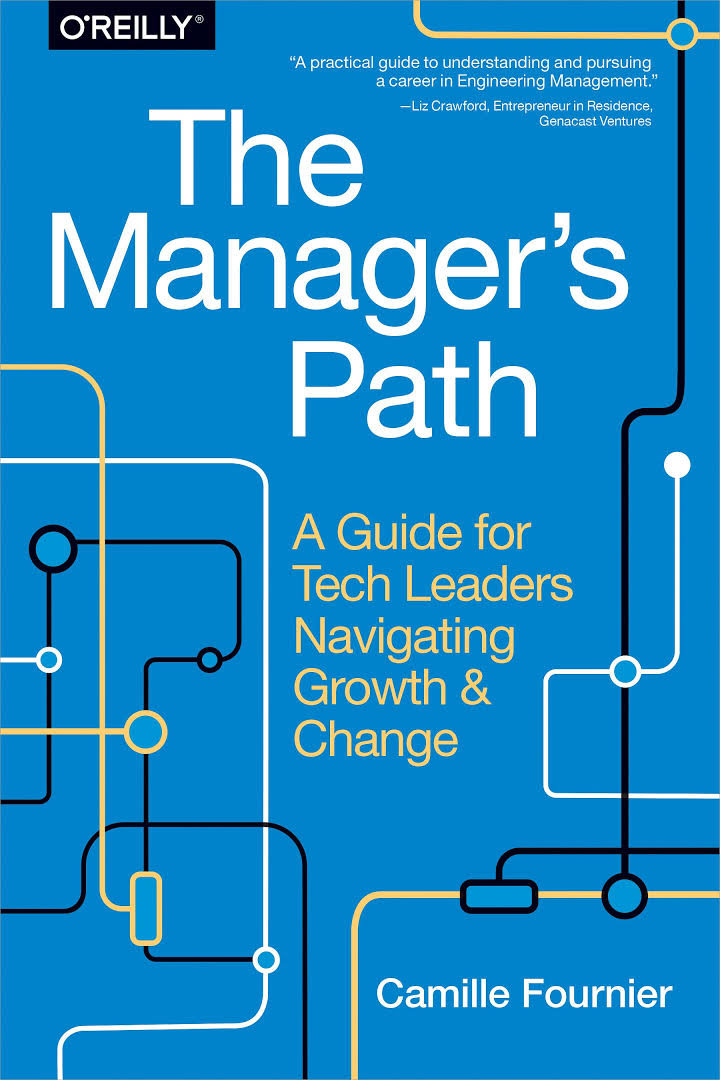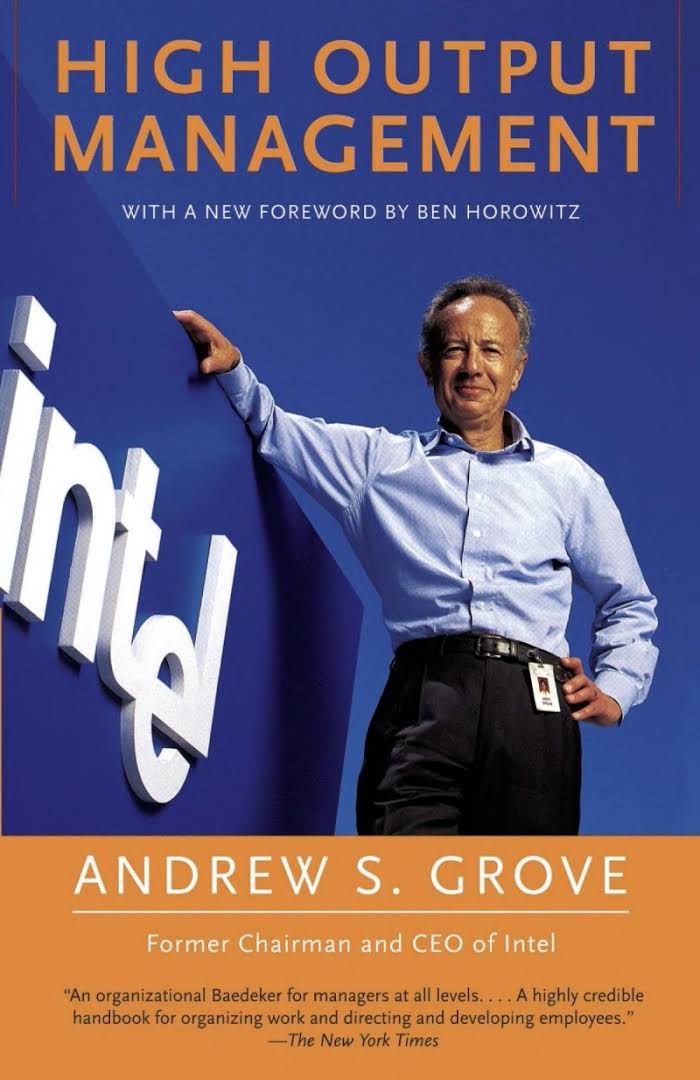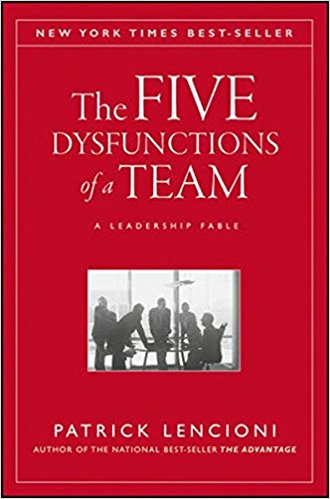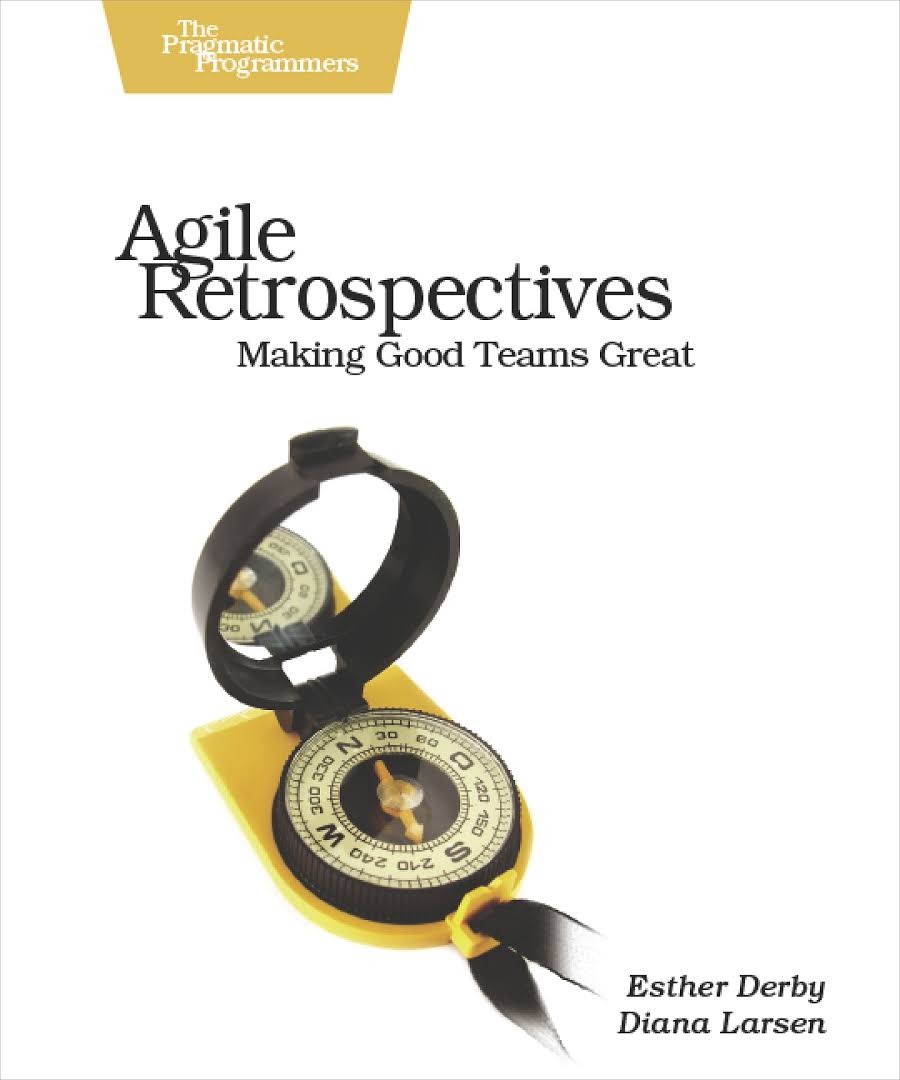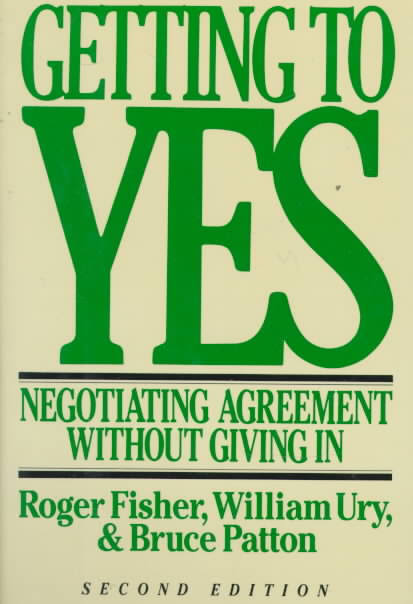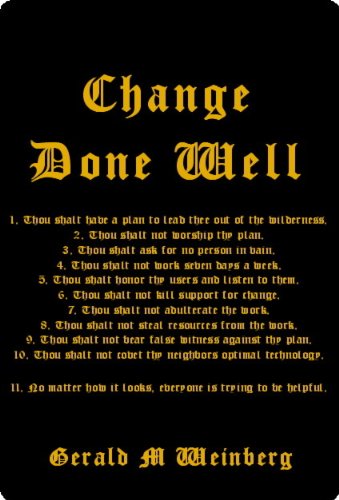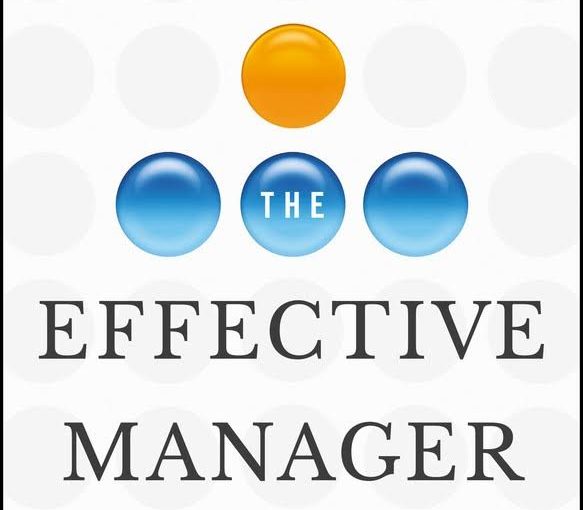
Management Books For The Software Development Environment
This is a recommended list of books to read for new team managers within a software development environment. This is about the process of managing time, people, and other resources, rather than writing the software yourself.
The Effective Manager
Mark Horstman
The how-to guide for exceptional management from the bottom up
The Effective Manager is a hands-on practical guide to great management at every level. Written by the man behind Manager Tools, the world’s number-one business podcast, this book distills the author’s 25 years of management training expertise into clear, actionable steps to start taking today. First, you’ll identify what “effective management” actually looks like: can you get the job done at a high level? Do you attract and retain top talent without burning them out? Then you’ll dig into the four critical behaviors that make a manager great, and learn how to adjust your own behavior to be the leader your team needs. You’ll learn the four major tools that should be a part of every manager’s repertoire, how to use them, and even how to introduce them to the team in a productive, non-disruptive way.
Most management books are written for CEOs and geared toward improving corporate management, but this book is expressly aimed at managers of any levelwith a behavioral framework designed to be tailored to your team’s specific needs.
- Understand your team’s strengths, weaknesses, and goals in a meaningful way
- Stop limiting feedback to when something goes wrong
- Motivate your people to continuous improvement
- Spread the work around and let people stretch their skills
Effective managers are good at the job and “good at people.” The key is combining those skills to foster your team’s development, get better and better results, and maintain a culture of positive productivity. The Effective Manager shows you how to turn good into great with clear, actionable, expert guidance.
The Manager’s Path
Camille Fournier
Managing people is difficult wherever you work. But in the tech industry, where management is also a technical discipline, the learning curve can be brutal—especially when there are few tools, texts, and frameworks to help you. In this practical guide, author Camille Fournier (tech lead turned CTO) takes you through each stage in the journey from engineer to technical manager.
From mentoring interns to working with senior staff, you’ll get actionable advice for approaching various obstacles in your path. This book is ideal whether you’re a new manager, a mentor, or a more experienced leader looking for fresh advice. Pick up this book and learn how to become a better manager and leader in your organization.
- Begin by exploring what you expect from a manager
- Understand what it takes to be a good mentor, and a good tech lead
- Learn how to manage individual members while remaining focused on the entire team
- Understand how to manage yourself and avoid common pitfalls that challenge many leaders
- Manage multiple teams and learn how to manage managers
- Learn how to build and bootstrap a unifying culture in teams
High Output Management
Andy Grove
In this legendary business book and Silicon Valley staple, the former chairman and CEO (and employee number three) of Intel shares his perspective on how to build and run a company.
The essential skill of creating and maintaining new businesses—the art of the entrepreneur—can be summed up in a single word: managing. Born of Grove’s experiences at one of America’s leading technology companies, High Output Management is equally appropriate for sales managers, accountants, consultants, and teachers, as well as CEOs and startup founders. Grove covers techniques for creating highly productive teams, demonstrating methods of motivation that lead to peak performance—throughout, High Output Management is a practical handbook for navigating real-life business scenarios and a powerful management manifesto with the ability to revolutionize the way we work.
The Five Dysfunctions of a Team
Patrick Lencioni
In The Five Dysfunctions of a Team Patrick Lencioni once again offers a leadership fable that is as enthralling and instructive as his first two best-selling books, The Five Temptations of a CEO and The Four Obsessions of an Extraordinary Executive. This time, he turns his keen intellect and storytelling power to the fascinating, complex world of teams.
Kathryn Petersen, Decision Tech’s CEO, faces the ultimate leadership crisis: Uniting a team in such disarray that it threatens to bring down the entire company. Will she succeed? Will she be fired? Will the company fail? Lencioni’s utterly gripping tale serves as a timeless reminder that leadership requires as much courage as it does insight.
Throughout the story, Lencioni reveals the five dysfunctions which go to the very heart of why teams even the best ones-often struggle. He outlines a powerful model and actionable steps that can be used to overcome these common hurdles and build a cohesive, effective team. Just as with his other books, Lencioni has written a compelling fable with a powerful yet deceptively simple message for all those who strive to be exceptional team leaders.
Agile Retrospectives
Esther Derby and Diana Larsen
See how to mine the experience of your software development team continually throughout the life of the project. The tools and recipes in this book will help you uncover and solve hidden (and not-so-hidden) problems with your technology, your methodology, and those difficult “people” issues on your team.
Project retrospectives help teams examine what went right and what went wrong on a project. But traditionally, retrospectives (also known as “post-mortems”) are only helpful at the end of the project–too late to help. You need agile retrospectives that are iterative and incremental. You need to accurately find and fix problems to help the team today.
Now, Derby and Larsen show you the tools, tricks, and tips you need to fix the problems you face on a software development project on an on-going basis. You’ll see how to architect retrospectives in general, how to design them specifically for your team and organization, how to run them effectively, how to make the needed changes, and how to scale these techniques up. You’ll learn how to deal with problems, and implement solutions effectively throughout the project–not just at the end.
With regular tune-ups, your team will hum like a precise, world-class orchestra.
Getting to Yes
Roger Fisher, William Ury, and Bruce Patton
Since its original publication nearly thirty years ago, Getting to Yes has helped millions of people learn a better way to negotiate. One of the primary business texts of the modern era, it is based on the work of the Harvard Negotiation Project, a group that deals with all levels of negotiation and conflict resolution. Getting to Yes offers a proven, step-by-step strategy for coming to mutually acceptable agreements in every sort of conflict. Thoroughly updated and revised, it offers readers a straight- forward, universally applicable method for negotiating personal and professional disputes without getting angry-or getting taken.
“This is by far the best thing I’ve ever read about negotiation. It is equally relevant for the individual who would like to keep his friends, property, and income and the statesman who would like to keep the peace.” –John Kenneth Galbraith.
Change Done Well
Gerald Weinberg
Change Done Well is the ninth volume in the highly acclaimed Quality Software series. In it, renowned author, Gerald M. Weinberg, illustrates how to create a supportive environment for improving software engineering —an environment in which your organization can realize long-lasting gains in quality and productivity by learning how to manage change.
The history of software engineering is riddled with failed attempts to improve quality and productivity without first creating a supportive environment. Many managers spend their money on tools, methodologies, outsourcing, training, and application packages, but these managers rarely spend anything to improve the way in which these hoped-for improvements are adopted and used correctly.
From systems thinking to project management to technology transfer to the interaction of culture and process, Change Done Well analyzes transformation from a broad range of perspectives, providing a breadth of awareness essential for successful transformation to high-quality software creation.
Topics include:
- Starting Projects Correctly
- Sustaining Projects Correctly
- Terminating Projects Properly
- Building Faster By Building Smaller
- Protecting Information Assets
- Managing Design
- Introducing Technology
- The Diagram of Effects
- The Software Engineering Cultural Patterns
- The Satir Interaction Model
- Control Models
- The Three Observer Positions
- and much more
Ask A Manager
Alison Green
From the creator of the popular website Ask a Manager and New York magazine’s work-advice columnist comes a witty, practical guide to navigating 200 difficult professional conversations—featuring all-new advice!
There’s a reason Alison Green has been called “the Dear Abby of the work world.” Ten years as a workplace-advice columnist have taught her that people avoid awkward conversations in the office because they simply don’t know what to say. Thankfully, Green does—and in this incredibly helpful book, she tackles the tough discussions you may need to have during your career. You’ll learn what to say when.
- coworkers push their work on you—then take credit for it
- you accidentally trash-talk someone in an email then hit “reply all”
- you’re being micromanaged—or not being managed at all
- you catch a colleague in a lie
- your boss seems unhappy with your work
- your cubemate’s loud speakerphone is making you homicidal
- you got drunk at the holiday party
“Clear and concise in its advice and expansive in its scope, Ask a Manager is the book I wish I’d had in my desk drawer when I was starting out (or even, let’s be honest, fifteen years in).” — Sarah Knight, New York Times bestselling author of The Life-Changing Magic of Not Giving a F*ck
